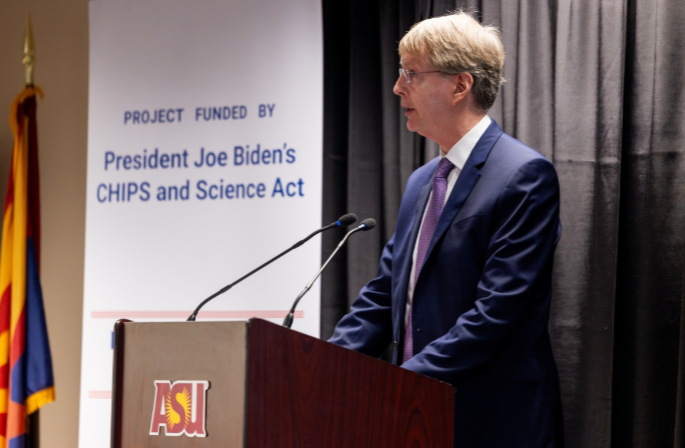
Alphacore is teamed with ASU's SWAP Hub team that has been awarded $29.6 million to develop the SMART project.
SMART — Scalable Modular Architecture for RF Transceivers: The project team is Alphacore, ASU, Rice University, Lockheed Martin and Auburn University. The project aims to advance radio frequency transceiver technology to improve national defense and commercial capabilities. Integrating communications and sensing in a single system-on-a-chip increases resource efficiency, optimizes spectrum utilization, reduces latency and improves reliability while reducing the size and cost of transceivers. The goal of the project is to create a transceiver integrated on a single microelectronics chip, capable of both communications and sensing functions with novel capabilities for devices using 5G and 6G mobile networks and beyond
In total five projects led by the Southwest Advanced Prototyping (SWAP) HUB at Arizona State University to advance national security have been awarded nearly $30 million in federal funding. White House and U.S. Department of Defense officials joined industry and ASU partners on September 17 to announce the funding.
The five projects will help strengthen the nation's chip-making capabilities and reduce dependency on foreign sources of microelectronics. They are among 33 projects across the nation awarded a total of $269 million under the bipartisan CHIPS and Science Act-funded Microelectronics Commons initiative, as announced by the U.S. Department of Defense.
White House and U.S. Department of Defense officials began a three-city nationwide tour to announce these projects with a visit to the ASU MacroTechnology Works on Tuesday to reveal details of the projects in Arizona, as well as those from two hubs in California.
Headquartered in Arizona, the SWAP Hub is part of the Microelectronics Commons, a nationwide network of eight regional technology hubs. It connects the Southwest — the fastest-growing and largest semiconductor cluster in the U.S., with more than $100 billion in private investment — to a growing network of defense and electronics partners across the country.
The Microelectronic Commons, established in 2023, is set to receive a total of $2 billion through 2027. The initiative focuses on bridging the gap between laboratory prototyping and fabrication.